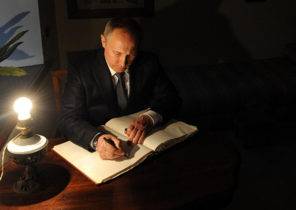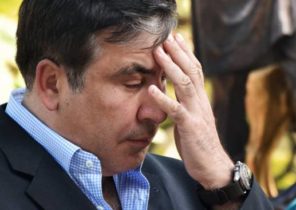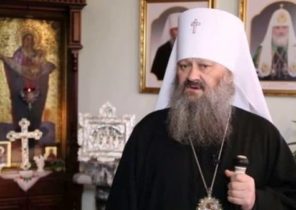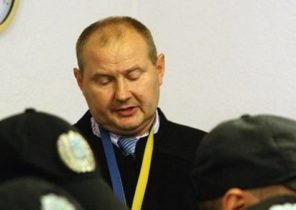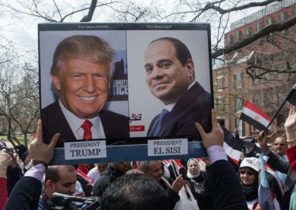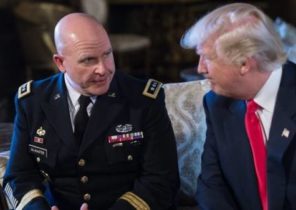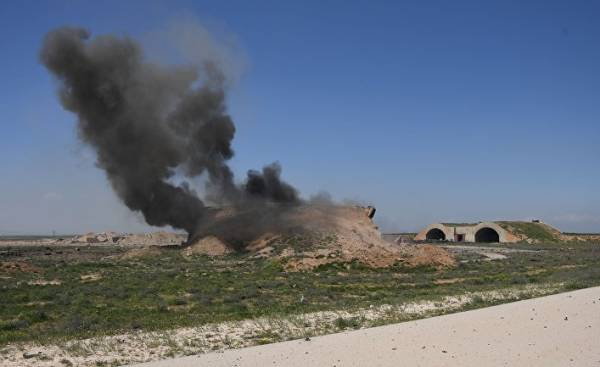
Last week the Syrian town of Khan shaykhun, rebel-held, was subjected to chemical attack. This forced the US President Donald trump’s first strike at the forces of Syrian President Bashar al-Assad. By bombing the air base in Western Syria, the administration trump started to fill the gaping power vacuum in the middle East. But what trump will do next?
For six years in Syria’s civil war, which killed more than 400 thousand civilians, and millions had to leave their homes, and the majority of American politicians praised trump for the unexpected intervention in this conflict, despite the fact that his actions did not receive the necessary congressional approval. Factions of the Syrian rebels and foreign allies of America (including the participants in the just concluded in Italy the meeting of foreign Ministers of the countries “Big seven”) welcomed a US strike on Syrian government forces.
Using 59 missiles “Tomahawk” trump sent to the Assad regime and its backers, primarily Russia and Iran, the message: unlike his predecessor, Barack Obama, he is ready to force them to comply with the “red line”. Not surprisingly, the Kremlin, Vladimir Putin condemned the us attack, stating that it was a violation of international law. But this is a very controversial statement, because the signature Syria is under an international Treaty prohibiting the use of chemical weapons.
However, whichever signal was the decision of trump, in the future, this signal will probably be inevitably incoherent muffled roar inside his strategically inconsistent administration. Nikki Haley, U.S. representative to the UN, said Assad’s resignation is a priority now. And the Secretary of state Rex Tillerson insists that the main priority of America is still the defeat of the Islamic state (banned in Russia as a terrorist organizatsii — approx. ed.). Worse, trump’s decision to use military force, reportedly was influenced by his daughter, Ivanka, who was “shocked and extremely outraged” when he saw photos of victims of a chemical attack.
Impulsive actions, driven by personal feelings, can not substitute for long-term foreign policy. Moreover, the lack of a clear, comprehensive approach, in the first place, and allowed Russia to intervene in the Syrian conflict. From the point of view of Putin, from-for unwillingness of Obama to intervene he had a Golden chance “to insert the foot in the door” of the Middle East.
The goal of Putin in the region — not to be there long-term positive impact. Rather, he wants Russia wedged between different players, which do not have consistency in the relationship between themselves and thereby raised their own prestige and power. As any good KGB man, Putin is playing from on all sides are promoting their own agenda. And now beginning to take the form of a new variation of the Warsaw Pact.
Under this strategic game Russia is building its influence in the closest American ally — Israel. Only in the past year, Putin and Prime Minister Benjamin Netanyahu met five times, developing bilateral relations. Associated sanctions, which were imposed in response to the annexation of the Crimea Russia, Putin wants to find in the technology sector of Israel, the replacement stopped supplies from the West. For its part, Israel hopes that Russia will help him to rein in Iran. Contrary to some public statements by Netanyahu that Israel does not oppose intervention in Syria. In Israel believe that Assad is a lesser evil than the threat of a chaotic, failed state, like Libya after the overthrow of Colonel Gaddafi in 2011.
Putin dusting some success in Iraq. In the past year, the Kremlin sent to Baghdad the largest for many years of the delegation (over 100 participants) for the expansion of ties in Commerce and security. Further contacts were mostly in military assistance, but Putin welcomed the new Ambassador of Iraq in Russia Haidar Mansour Hadi, saying about the prospects of cooperation in the energy sector.
Further, Afghanistan: Russia is seeking to establish effective relations with the Taliban, copying American behavior in the 1980-ies. Flirting with the Taliban, Putin helps to destabilize the already weak government in Kabul. As a result, it becomes an indispensable element for any American strategy, the end of the longest war in U.S. history.
In Egypt Russia is trying to regain the influence which it possessed in the Soviet era. And she has made some progress thanks to the President of Egypt Abdel-Fattah al-Sisi, a faithful fan of Putin’s model of governance with a firm hand. He is interested in rebuilding the tourism industry in Egypt and Russia can help him accomplish this task.
Before 2015, the terrorists blew up the plane with the Russian tourists flying over the Sinai, the proportion of Russians in the flow of tourists to Egypt reached 30%. Recently, Russia has reestablished commercial air service to this country, but the explosions of suicide bombers in two Coptic churches on palm Sunday questioned the details of the CC security guarantees.
Egyptian difficulties give Putin a new chance to lend a hand. Russia has received permission to expand its qualifying industrial zone in Port said; the government of Egypt has signed contracts for the purchase of Russian military equipment worth billions of dollars, including missile systems. In addition, Egypt gave Russia access to its air bases for use by special forces in Libya to help the Caliph Haftarot, the local military leader who supports Putin.
Putin’s foreign policy is based not so much on the use of Russian forces, but to capitalize on the weaknesses of others. The purchase loyalty of unstable modes, which Putin promised to help, can look quite successful strategy, but the house he’s building made of cards. Russia has neither the resources nor the military power to indefinitely support these unstable modes. Putin needs to understand this. Tillerson knows it exactly.
During a visit to Moscow this week Tillerson, apparently, clearly explained that, if Putin will continue to be part of the problem in the middle East, Russia’s relations with the US deteriorate further. Putin respects strength, and he wants the US treated him as an equal, so it is quite possible to convince to become part of the solution, not the problem.
The bilateral relations of Russia and the United States are now at such a low level that achieved during the visit Tillerson agreement between the two parties on the establishment of working groups to improve them creates certain expectations. But to further convince Putin to stand on the “right” side in Syria, the administration, trump will have to provide a real solution, and this solution is, it seems not.
